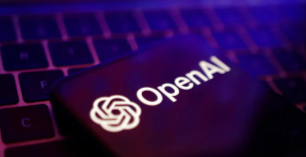OpenAI, a leading artificial intelligence company, is facing double security concerns with its newly released Mac ChatGPT app. The app, which allows users to generate text conversations using OpenAI’s GPT-3 technology, has come under scrutiny for potential vulnerabilities that could compromise user data and privacy.
The Security Concerns:
One of the primary security concerns with the Mac ChatGPT app is the potential for malicious actors to exploit vulnerabilities in the software to access sensitive user information. Given the nature of the app, which involves generating text based on user input, there is a risk that personal data could be inadvertently shared or leaked.
In addition, there are broader cybersecurity practices at play here. As more and more companies rely on artificial intelligence technology for various applications, it becomes increasingly important to ensure that these systems are secure and protected against cyber threats.
The Response from OpenAI:
OpenAI has acknowledged the security concerns surrounding the Mac ChatGPT app and has taken steps to address them. The company has implemented additional security measures to protect user data and privacy, including encryption protocols and regular security audits.
“We take the security of our users’ data very seriously,” said a spokesperson from OpenAI. “We are continually monitoring and updating our systems to ensure that they meet the highest standards of cybersecurity.”
Looking Ahead:
As artificial intelligence technology continues to advance and become more prevalent in everyday applications, it is crucial for companies like OpenAI to prioritize cybersecurity practices. By proactively addressing potential vulnerabilities and implementing robust security measures, these companies can help safeguard user data and maintain trust with their customers.
In conclusion, while the Mac ChatGPT app may have raised some security concerns, OpenAI’s response demonstrates a commitment to protecting user data and upholding cybersecurity best practices. It serves as a reminder of the importance of prioritizing security in an increasingly digital world.
